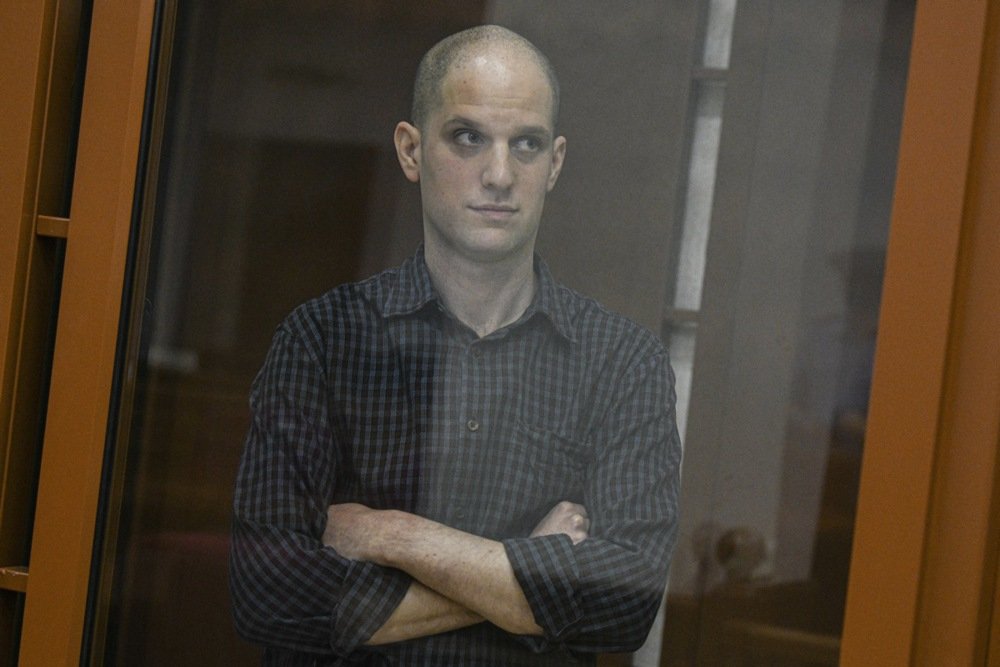
WSJ correspondent Evan Gershkovich stands in a glass cage prior to a hearing in Yekaterinburg’s Sverdlovsk Regional Court, Yekaterinburg, Russia, 26 June 2024. Photo: EPA-EFE/STRINGER
The espionage trial of Wall Street Journal correspondent Evan Gershkovich began behind closed doors in the city of Yekaterinburg in Russia’s Urals on Wednesday, the court overseeing his case announced.
Images from the Sverdlovsk Regional Court showed Gershkovich with his head shaved in the courtroom’s glass cage as he awaited the start of his trial.
Yekaterinburg news outlet It’s My City reported that an American diplomat had been seen at the court, with journalists from the US, UK, Switzerland and France also travelling to “support Gershkovich”.
Under the rules governing in-camera trials in Russia, which are normally held when cases involve state secrets, only the judge, prosecutor, defence and the accused are permitted to attend the trial.
Gershkovich has already spent 15 months in pretrial detention in Moscow’s notorious Lefortovo prison having been arrested in Yekaterinburg in March 2023 while researching a story on the Wagner mercenary group for the Wall Street Journal.
The Russian authorities maintain that Gershkovich, the first US journalist to be arrested on espionage charges in Russia since the Cold War, was spying for the CIA and had been attempting to collect state secrets. If found guilty, he faces up to 20 years in prison.
The Wall Street Journal published a letter by its editor Emma Tucker on Tuesday inviting readers to share their messages for Gershkovich’s family, in which she called the trial a “continuation of this travesty of justice that already has gone on for far too long”.
Tucker said that the “bogus accusation of espionage” against Gershkovich would “inevitably lead to a bogus conviction for an innocent man”, but emphasised that US efforts to secure his release would continue.
Vladimir Putin told journalists earlier in June that Moscow and Washington remained in contact regarding Gershkovich but that such issues “should be resolved only on the basis of reciprocity”, hinting at a potential prisoner swap he alluded to during an interview with US journalist Tucker Carlson in February.
Last week, Russia’s Deputy Foreign Minister Sergey Ryabkov said that the “ball was in the US’ court” in negotiations on Gershkovich’s case, but that Russia’s proposals “may not suit the Americans”.
